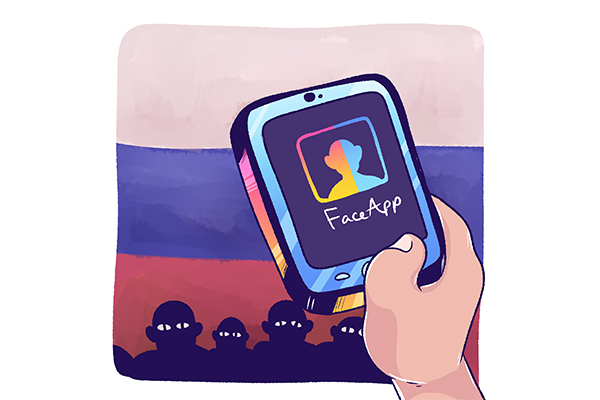After several Hollywood stars posted edited photos portraying their face with wrinkles, gray hair and sagging skin, the application behind the images, FaceApp, went viral. However, the app’s ties to Russia have raised security concerns, including a warning from the Democratic National Committee ahead of the 2020 election cycle.
The app applies filters to user-uploaded photos and first emerged in 2017, though the aging filter made it a household name this summer. By agreeing to the app’s terms, users granted its Russian parent company, Wireless Labs, a license to their photos that is “perpetual, irrevocable, nonexclusive, royalty-free, worldwide and fully-paid.”
Amid concerns over Russian interference in the 2016 elections, the DNC advised 2020 presidential campaigns on July 17 to delete the app “immediately.” U.S. Senate Minority Leader Chuck Schumer followed shortly with a letter to the FBI and the Federal Trade Commission requesting an investigation.
“In the age of facial recognition technology as both a surveillance and security use, it is essential that users have the information they need to ensure their personal and biometric data remains secure,” Schumer wrote in his letter.
According to the Washington Post, Kate O’Neill, a tech consultant, said FaceApp’s privacy terms are murky but not unlawful.
“People should be savvy about when apps and memes and games are encouraging everyone to engage in the same way,” O’Neill said. “It puts the data in a vulnerable state that becomes something that can train facial recognition and other kinds of systems that may not be intended the way people are using it.”
Government senior Conner Vanden Hoek said he is more concerned about FaceApp than other services that collect user data, such as Amazon, Facebook and Google, because of its country of origin.
“Even though realistically our data is bought and shared all the time, it still doesn’t mean I’m gonna help that process by downloading and using an app with privacy concerns because I wanna look older,” Vanden Hoek said in a direct message on Twitter.
Because users grant FaceApp such an extensive license to their photos, their images could end up being used for advertising purposes without the user’s knowledge or permission, according to The New York Times.
“I think you’ve got to be kidding yourself if you don’t think your facial features are already being used for whatever purposes Facebook or the government wants,” economics graduate student Larisa Barreto said in a text message.














